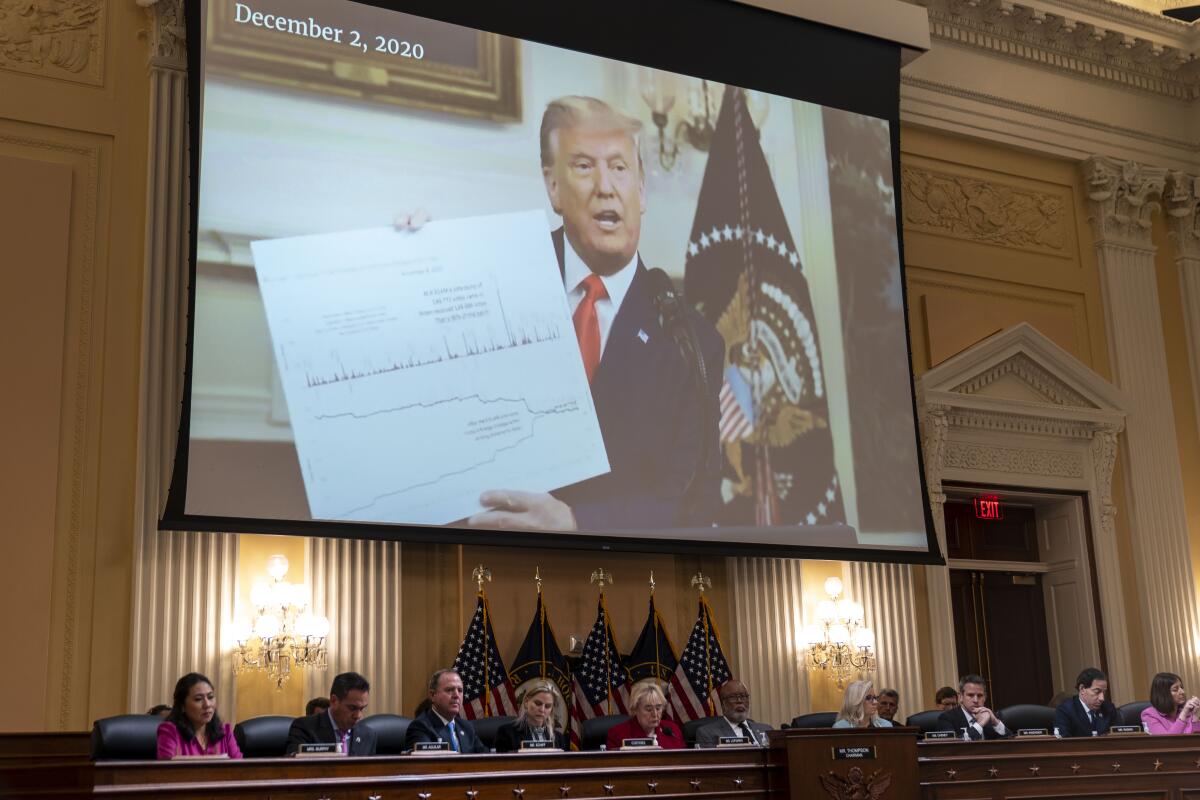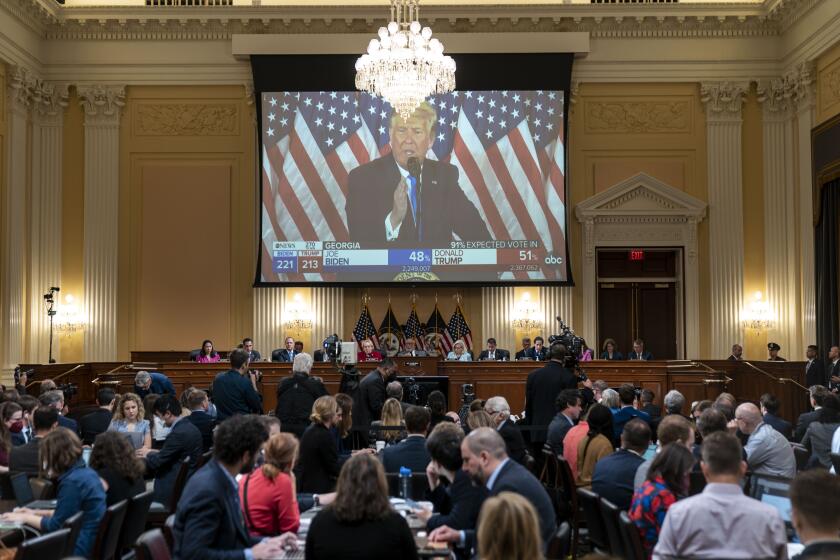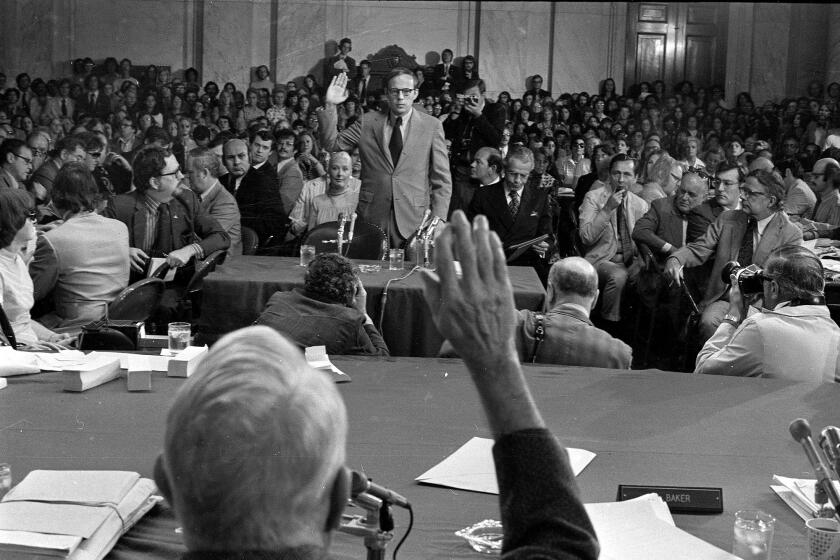Column: Even if the DOJ prosecutes Trump, it’s the American people who need to repudiate the ‘Big Lie’

- Share via
As the Jan. 6 committee continues to roll out an overwhelming case of corrupt conduct by Donald Trump, the calls grow louder for the Department of Justice to bring criminal charges against the former president.
Even if that happens, it would be a fundamental mistake to view the department as the avenging angel that alone can restore accountability and truth to our deeply damaged politics. We are in a critical constitutional moment, and it is society as a whole that has to renounce Trump’s lies and the democracy-destroying poison — and actions — that he and other Trumpists will inflict on the 2024 elections and have inflicted on state voting laws in the past year.
From everything we know, and especially from the evidence put on in the two hearings so far, the Justice Department appears to have the goods to indict Trump. As is widely recognized, the pivotal issue for criminal liability is Trump’s state of mind: If he knew he lost the election, it would be straightforward to show that several of his post-election day schemes were criminal.
At this point, there are several ways to focus a prosecution.
Even if Trump isn’t criminally prosecuted, the hearings have created a space for GOP officials to say openly what they already knew: Trump lied about the election.
First, with the mountainous evidence presented by the committee that Trump was told by nearly all the members of his circle that he had lost, a jury could simply choose not to believe his outlandish lie. For example, Trump began to propound the “Big Lie” before any votes actually came in. That suggests he was not deluded but rather determined to adopt a fantasy version that he knew was false from the beginning.
Second, prosecutors could rely on the legal concept of willful blindness, which is a form of knowledge under the law. If a jury were to find that Trump purposely hid his head in the sand in order not to know the truth, it could conclude that he had legally sufficient knowledge. And again, the evidence from several quarters, especially from the former Atty. Gen. William Barr, that Trump did not want to hear any discussion of the facts of the election would support such a determination.
Finally, the intent issue doesn’t turn in any way on Trump’s belief, sincere or not, that he won the election. Even if Trump had so deeply drunk of his own Kool-Aid as to believe he won, the criminal intent in question is knowledge of the unlawful actions taken to stop Congress’ electoral count on Jan. 6, 2021. He has not, nor has any ally, even attempted to suggest he was deluded there.
Just last week, before the first hearing, Trump called the attack on the Capitol by his supporters “the greatest movement” in U.S. history. If, as Rep. Liz Cheney argued at the hearing, he lit the flame of the insurrection, he continues to this day to fan the fire, with toxic consequences to society.
Republican leadership chose from the start not to participate in the Jan. 6 committee, to deny it the legitimacy the Watergate committee enjoyed.
So criminal prosecution may well be possible. But it would be a cardinal error to rely on federal prosecutors to pull the country out of the danger Trump has created for American democracy. More than 100 Republican primary winners for state or congressional offices, so far, have repeated Trump’s lies about the stolen 2020 election, according to the Washington Post.
If the Justice Department were to charge Trump while a big share of the country remained significantly in his thrall, conviction or no conviction, the process could tear the country further apart. It’s easy enough to imagine, for example, (though it would have been unimaginable six years ago) that Trump would run for president from prison and simply ignore any court ruling to stand down.
More generally, the idea that Atty. Gen. Merrick Garland can end the national political nightmare through prosecution asks too much of prosecutors. We need to defend the rule of law and ensure that no one is above the law, but repairing the political damage done will depend on other instruments of democracy.
We have a right to expect Garland to make an apolitical prosecutorial decision on the merits — which will need to include the complicated set of questions on whether prosecuting a former president is in the best interests of the country. But ultimately, it falls on the American public — including the 65% of Republicans who still believe in Trump’s Big Lie — to repudiate that lie and the insurrection. No institution can do it for us.
More to Read
A cure for the common opinion
Get thought-provoking perspectives with our weekly newsletter.
You may occasionally receive promotional content from the Los Angeles Times.













